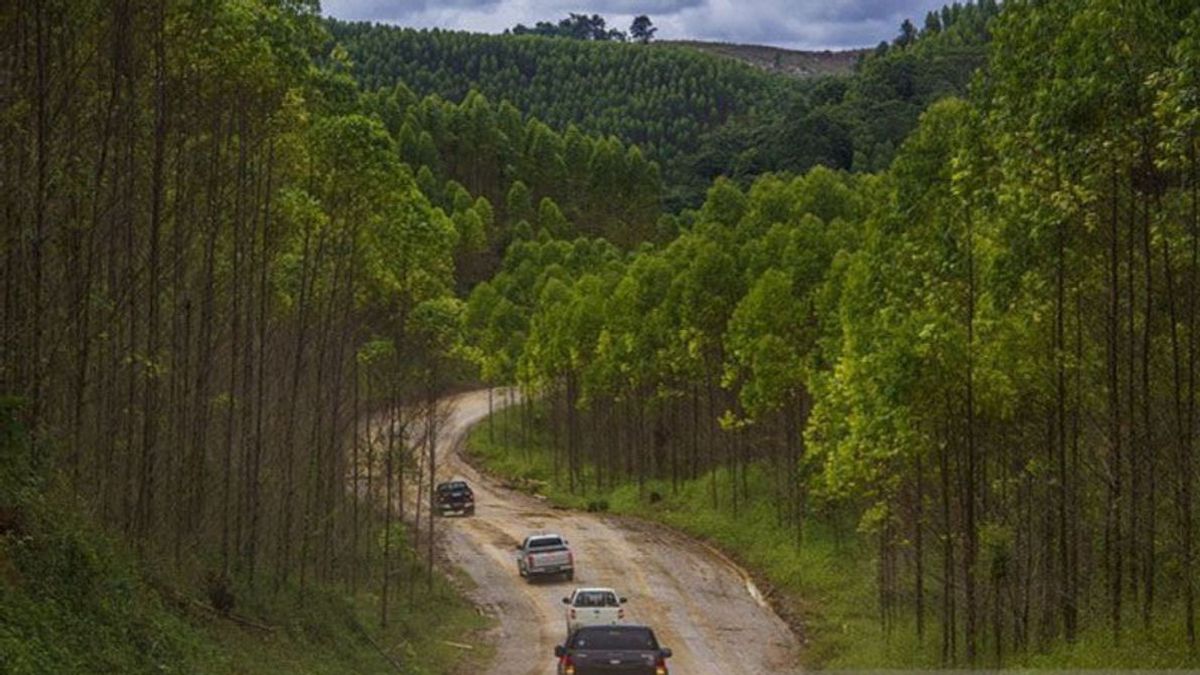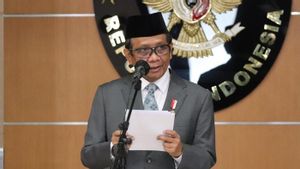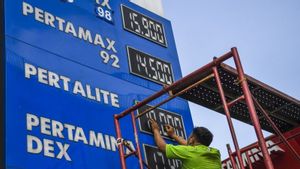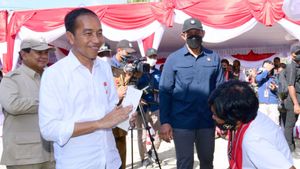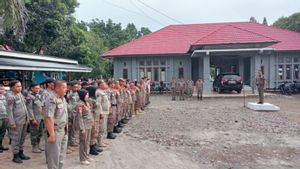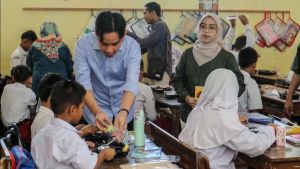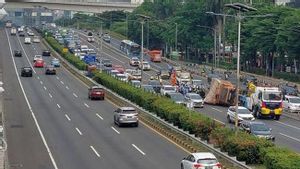SAMARINDA - Minister of Environment and Forestry (LHK) RI, Siti Nurbaya Bakar emphasized that the presence of the Capital of Nusantara (IKN) will not damage natural forests, but on the contrary, IKN will have a positive and broad impact on the ecological, economic and socio-cultural aspects of the community.
"The presence of IKN will also contribute to the achievement of the 2030 Folu Net Sink target (contribution to emission reductions set nationally in 2030)," said Minister of Environment and Forestry Siti Nurbaya Bakar while filling a Scientific Oration at the Open Senate Meeting for the 60th Anniversary of Mulawarman University. at the Gelora 27 September Unmul reported by ANTARA, Tuesday, 27 September.
Minister Siti Nurbaya's scientific oration itself raised the theme "Building a wet tropical forest in East Kalimantan as a modality towards Indonesia's Folu Net Sink 2030".
In front of thousands of students, Siti Nurbaya explained that IKN will consist of a land area of 256,000 hectares, including the Nusantara Capital area (KIKN) of 56,000 hectares, in which there is a Central Government Core Area (KIPP) of 6,600 hectares. While the IKN development area is 199,000 hectares and the sea area is 68,000 hectares.
Minister Siti Nurbaya also explained about the IKN forest city concept. According to her, IKN's forest city will balance the natural ecology, forest areas, and social systems in harmony.
"The concept of a forest city is a landscape-based city that places forest ecosystems as forming the structure of urban space, orients the lives of urban communities, and helps facilitate interactions between urban activities," explained Siti Nurbaya.
The Minister of Environment and Forestry explained that the IKN landscape is an industrial forest surrounded by production forests, conservation, and protected forest areas and the presence of IKN will also return East Kalimantan's forests to be green again, especially in the IKN area.
According to her, the government has prepared a Mentawir Nursery containing various plants from all over Indonesia with a production of 15 million tree seedlings per year.
"The natural tropical rain forest in East Kalimantan will be back again," explained Siti Nurbaya.
On the other hand, Minister Siti Nurbaya also praised East Kalimantan for making efforts to maintain forest sustainability along with economic activities.
VOIR éGALEMENT:
Evidently, East Kalimantan became the first province to receive payment commitments related to carbon emission reductions from donor countries in the world through the World Bank in the FCPF-CF program. Following East Kalimantan is Jambi Province.
"East Kalimantan can be an example for other regions in the world, that economic development can still be carried out while still paying attention to the ecological and social aspects of society. East Kalimantan has done it first, followed by Jambi," said Minister Siti Nurbaya.
The compensation from the World Bank for East Kalimantan is said to be 110 million USD.
In the future, she hopes that the sustainable forest paradigm will no longer clash between ecological, economic, and socio-cultural interests.
"In simple terms, it can be said, economically feasible, socially acceptable, ecologically sustainable," she explained.
According to Siti Nurbaya, environmental and forestry development not only has an important role to play in preventing various threats of disasters and disasters, but also supports the achievement of national development goals, namely protecting all of Indonesia's bloodshed, promoting general welfare and educating the nation's life, and maintaining world peace.
The English, Chinese, Japanese, Arabic, and French versions are automatically generated by the AI. So there may still be inaccuracies in translating, please always see Indonesian as our main language. (system supported by DigitalSiber.id)
